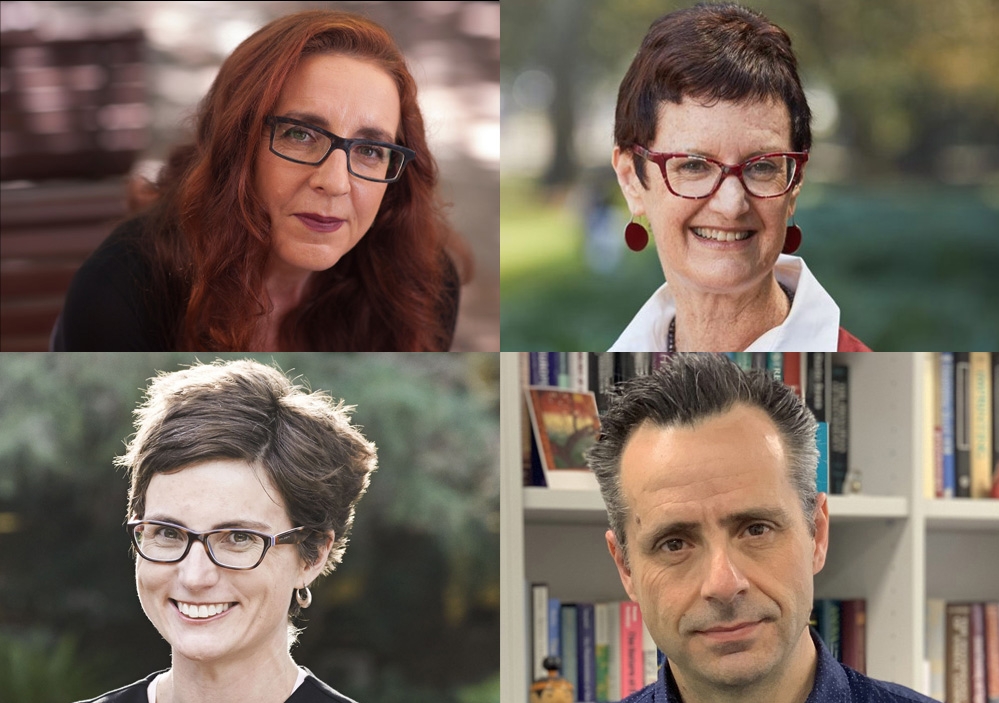UNSW professors elected to the Academy of the Social Sciences in Australia
The Fellowships recognise the work of top scholars who have significantly advanced research and knowledge in the social sciences.
The Fellowships recognise the work of top scholars who have significantly advanced research and knowledge in the social sciences.

Academics from UNSW Sydney's faculties of Law, Science and Arts & Social Sciences have been elected fellows of the Academy of Social Sciences in Australia (ASSA) in recognition of their distinguished contributions to Australian research and to society.
The UNSW Sydney fellows are Scientia Professor Carla Treloar, from UNSW Arts & Social Sciences, Professor Rosalind Dixon and Professor Julie Stubbs from UNSW Law, and Professor Gavan McNally from UNSW Science.
They were among 37 people elected to the Academy in 2019. The new Fellows join 57 other UNSW academics elected to the Academy who have significantly advanced research knowledge and developed new approaches to areas as diverse as human geography, social security and inequality, linguistics and education. The ASSA is one of the four learned academies in Australia.
Professor Treloar is Director of the Centre for Social Research in Health and the Social Policy Research Centre in UNSW Arts and Social Sciences. She is one of Australia’s most accomplished and internationally recognised researchers in the fields of hepatitis C and injecting drug use. Her work spans the disciplines of health psychology, sociology, public health and health services research, much of it located at the field-defining intersection of social science and medicine.
“The great part of academic life is continually learning and being exposed to new ideas,” Professor Treloar said. “Being a Fellow of the Academy gives me a whole new community to learn from and contribute to. Working in a very applied area of Social Medicine, it is important to me to have a group of colleagues in the social sciences to push forward innovation and critical scholarship.”
Professor Gavan McNally leads a team concerned with the fundamental psychological and brain mechanisms for learning and motivation, and how these apply to clinical conditions such as addictions, anxiety disorders, and mood disorders. Professor McNally and his team are interested in identifying these mechanisms, at the cellular, circuit, and systems level, as well as in translating this fundamental information into next generation treatments of psychological conditions.
His work contributes to the critical systematic application of logic and evidence to understand human behaviour and to improve outcomes for all. Professor McNally’s work lays a mechanistic, basic science foundation for the translation of new knowledge about the brain into the next generation of psychological theories as well as better treatments and outcome for sufferers of psychological disorders.
“It is an honour for our work to be recognised by my peers in this way. I am excited to join this distinguished community of scholars who act to promote excellence in research, teaching and advice in Australian social sciences,” Professor McNally said.
Professor Dixon’s work focuses on comparative constitutional law and constitutional design, constitutional democracy, theories of constitutional dialogue and amendment, socio-economic rights and constitutional law and gender. Currently, her research is centred on fragile democracies, or the threat posed by democratic backsliding, and what law and legal institutions may be able to do about it. Professor Dixon is a member of the Gilbert + Tobin Centre of Public Law and deputy director of the Herbert Smith Freehills Initiative on Law and Economics and, along with UNSW Economics Professor Richard Holden, is leading the UNSW’s Grand Challenge on Inequality.
“I feel honoured to join the Academy and the company of the many outstanding scholars who are part of it.” Professor Dixon said. “It also provides a wonderful platform for sharing ideas, about my research on constitutional democracy and on broader issues of public policy.”
Professor Stubbs is Co-Director of the Centre for Crime, Law and Justice at the UNSW Law School. She is a criminologist whose interdisciplinary research sits at the intersection of sociology and law. Her work has contributed to research concerning legal responses to domestic violence and homicide and has influenced legal developments concerning defences to homicide. Her research concerning restorative justice and gendered violence has attracted strong international interest and is widely cited.
She also has contributed to the development of violence prevention and policy and practice in response to violence against women through research leadership and advisory roles with VicHealth and Australia’s National Research Organisation for Women’s Safety (ANROWS), and as a Chief Investigator on the National Community Attitudes to Violence against Women Surveys.
“I hope that my work with the Academy can support efforts in two crucial areas: to enhance the safety of women and children who experience domestic violence, and to find alternatives to incarceration in recognition that high incarceration rates have damaging effects and do not necessarily make communities safer,” Professor Stubbs said. “Social science research can provide a strong foundation for public policy in both areas.”
Academy President Professor Jane Hall said that these new members bring an exciting and impressive depth of expertise to the work of the Academy.
“These new members are really at the cutting edge in social research and policy, and they’ve all made enormous contributions to their fields,” she said.
“These experts have been involved in everything from redefining accounting treatment of corporate social responsibility, to understanding and addressing domestic violence and designing effective work teams.
“They truly are an extraordinary group of individuals and have they have made enormous contributions to Australian society. It’s a privilege to have people of this calibre as members of the Academy.”